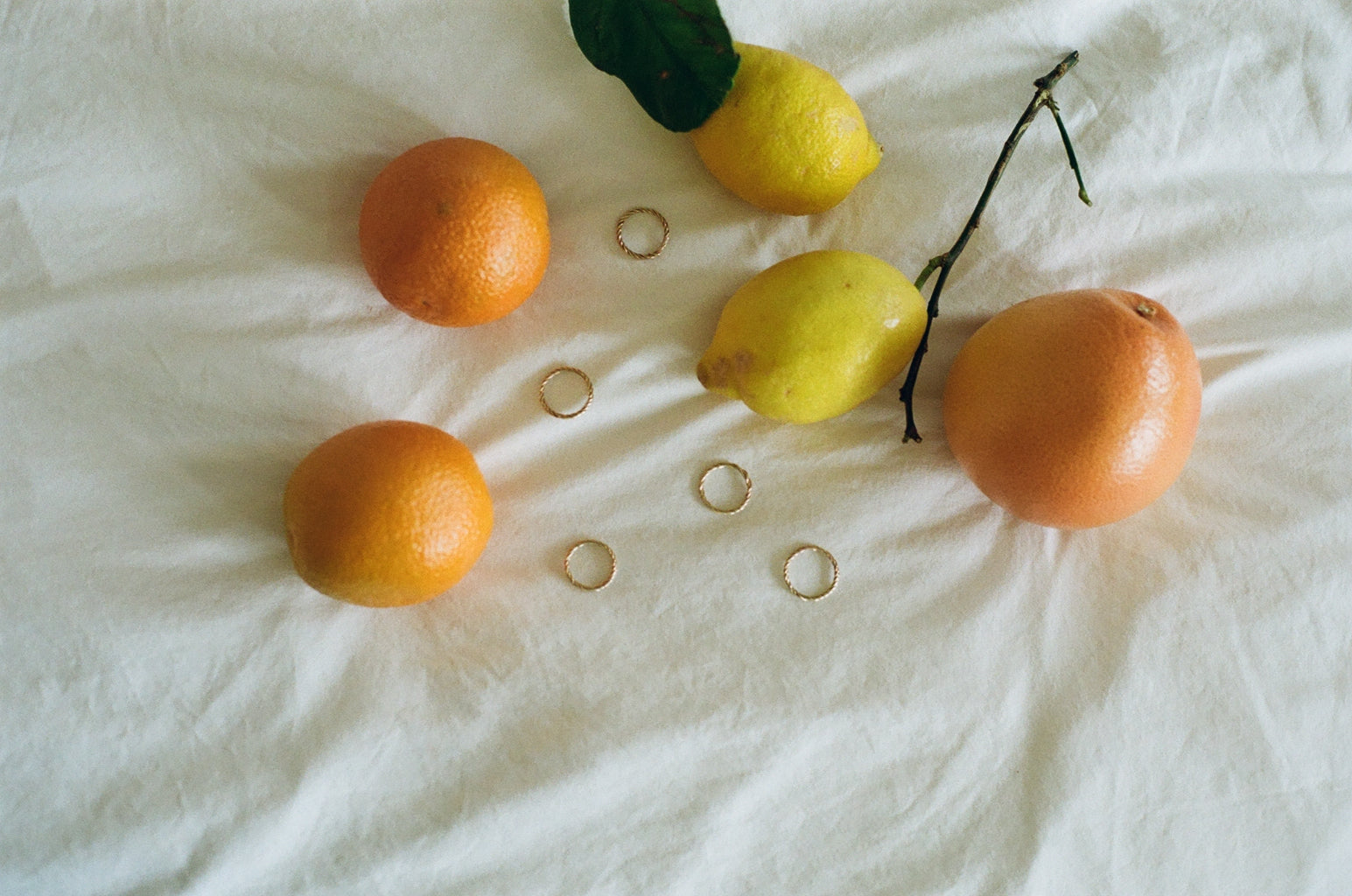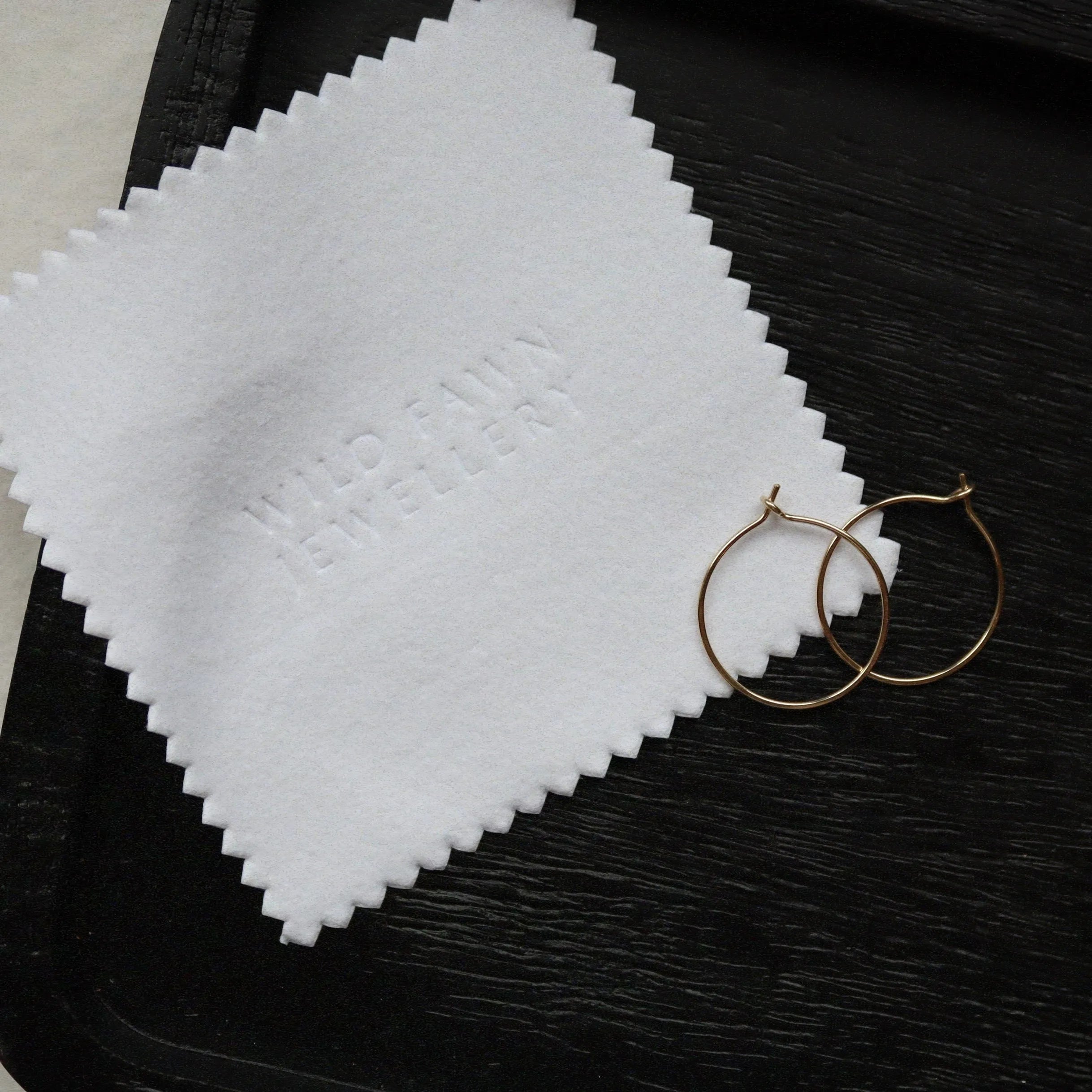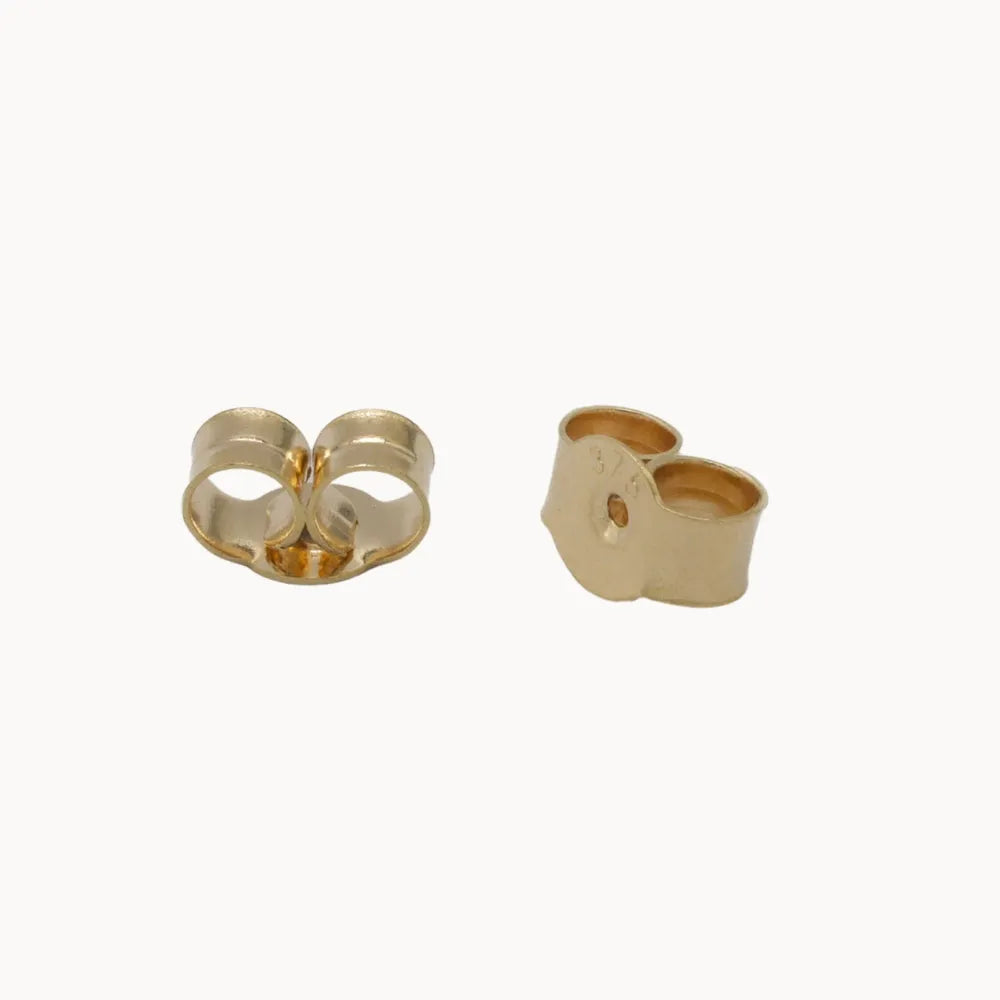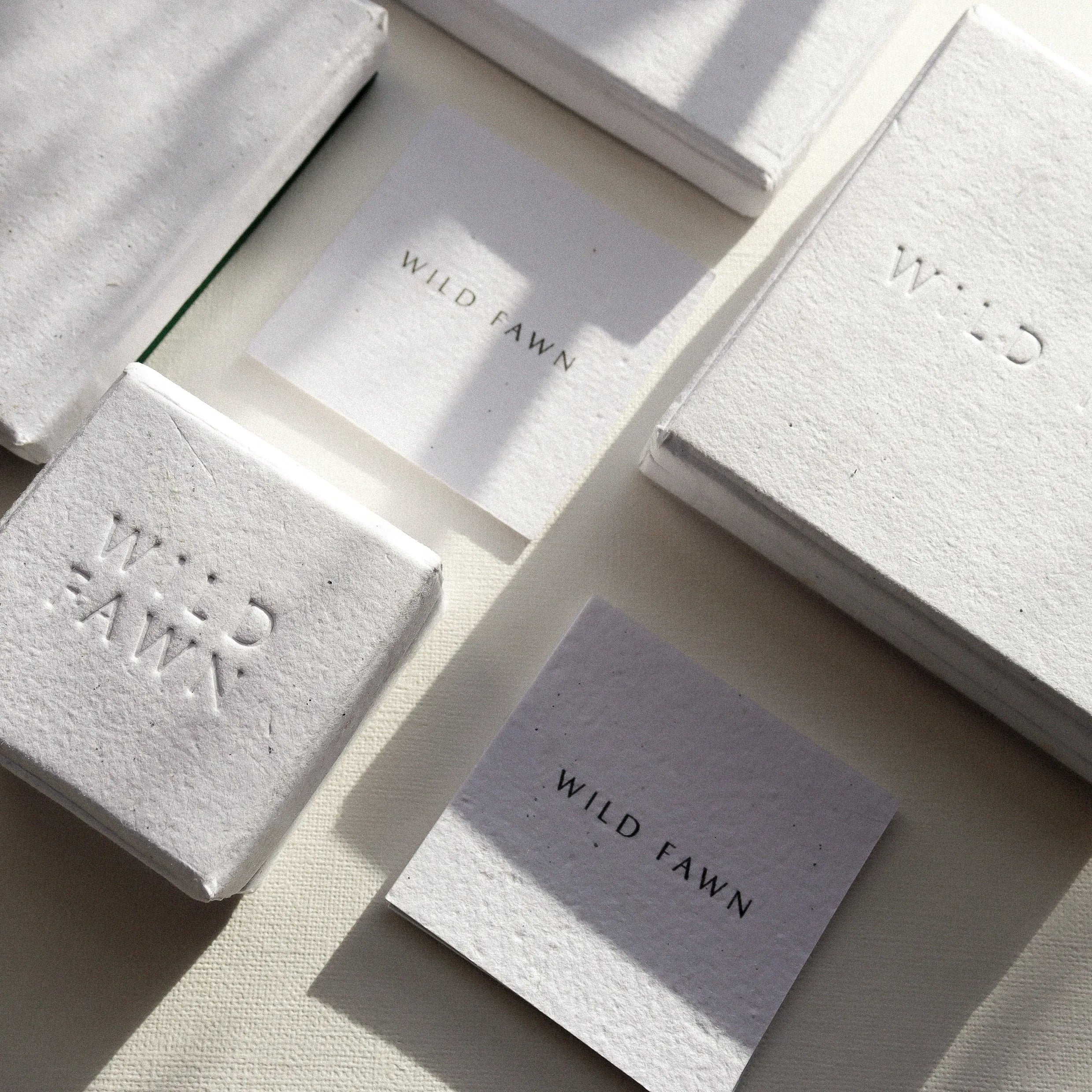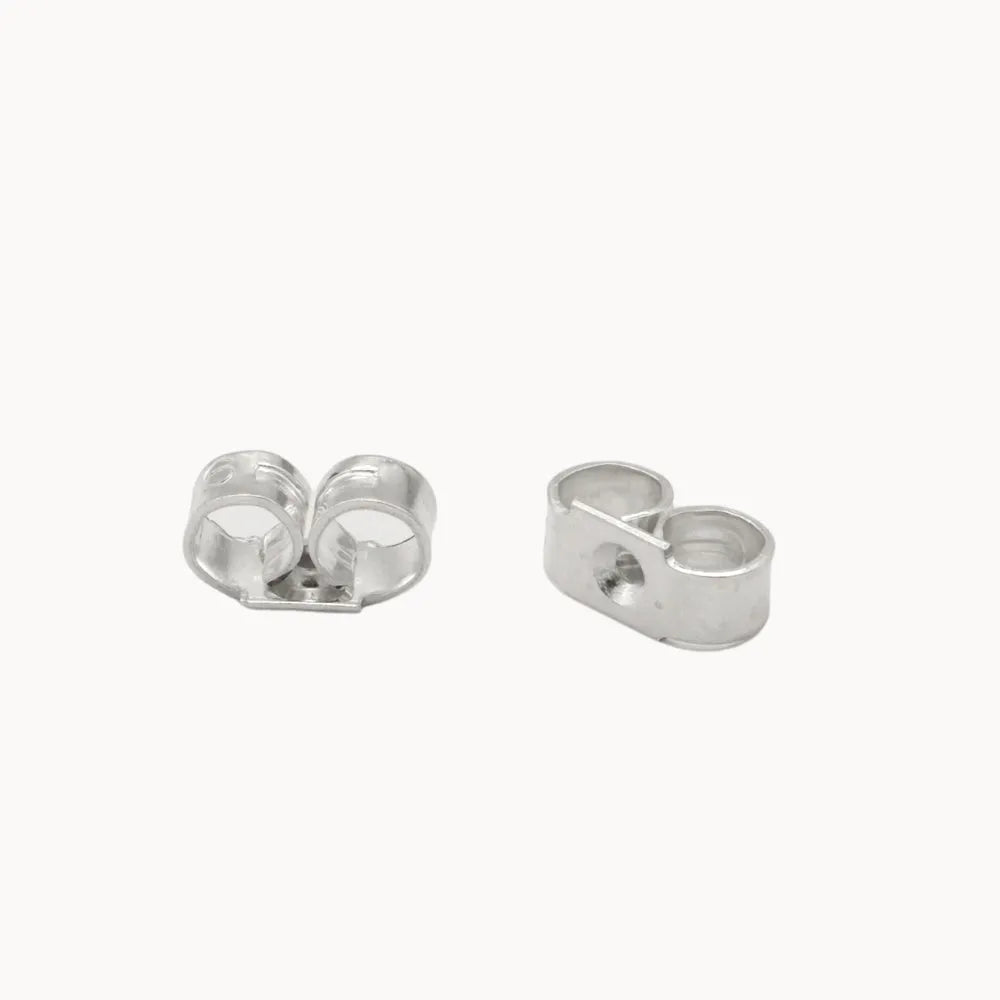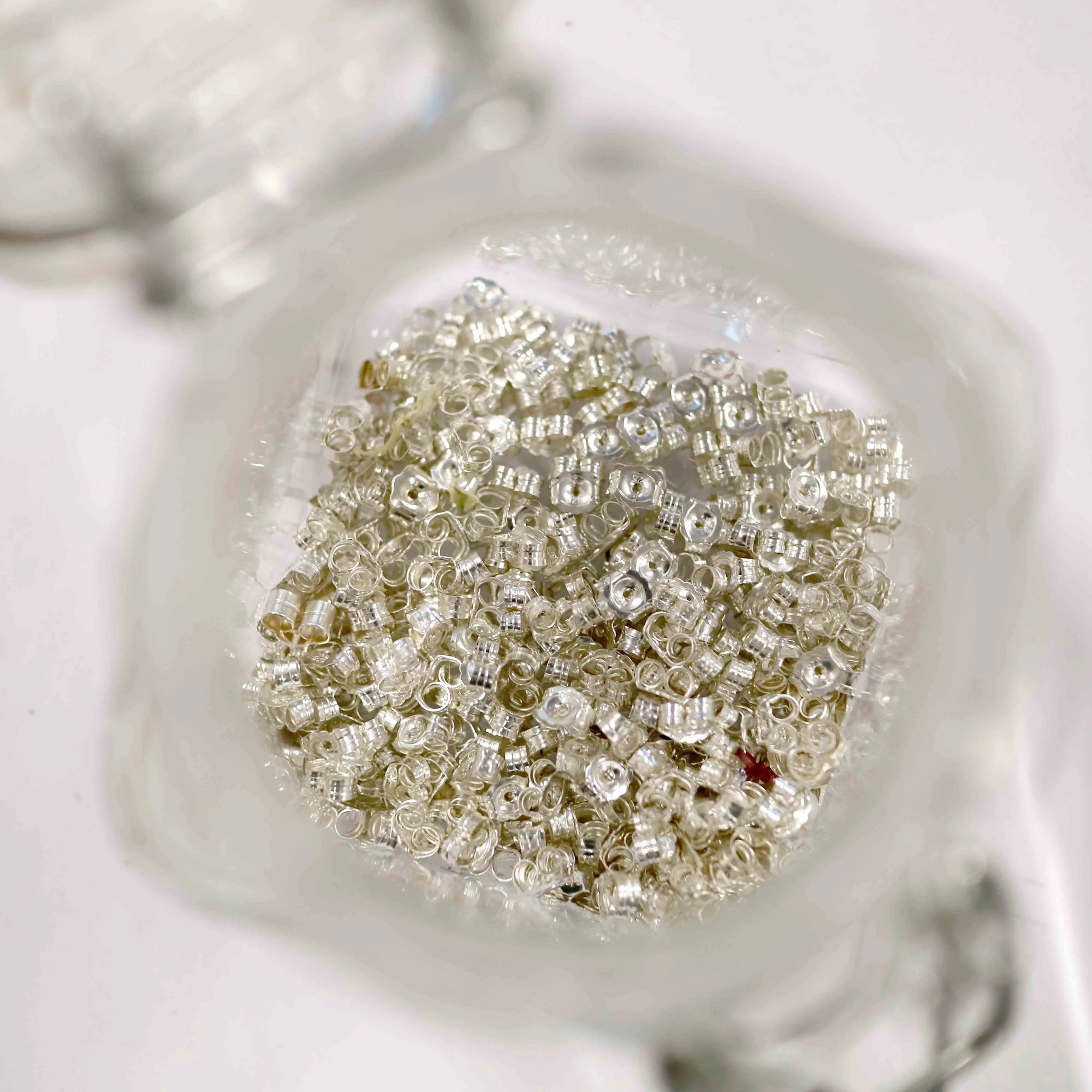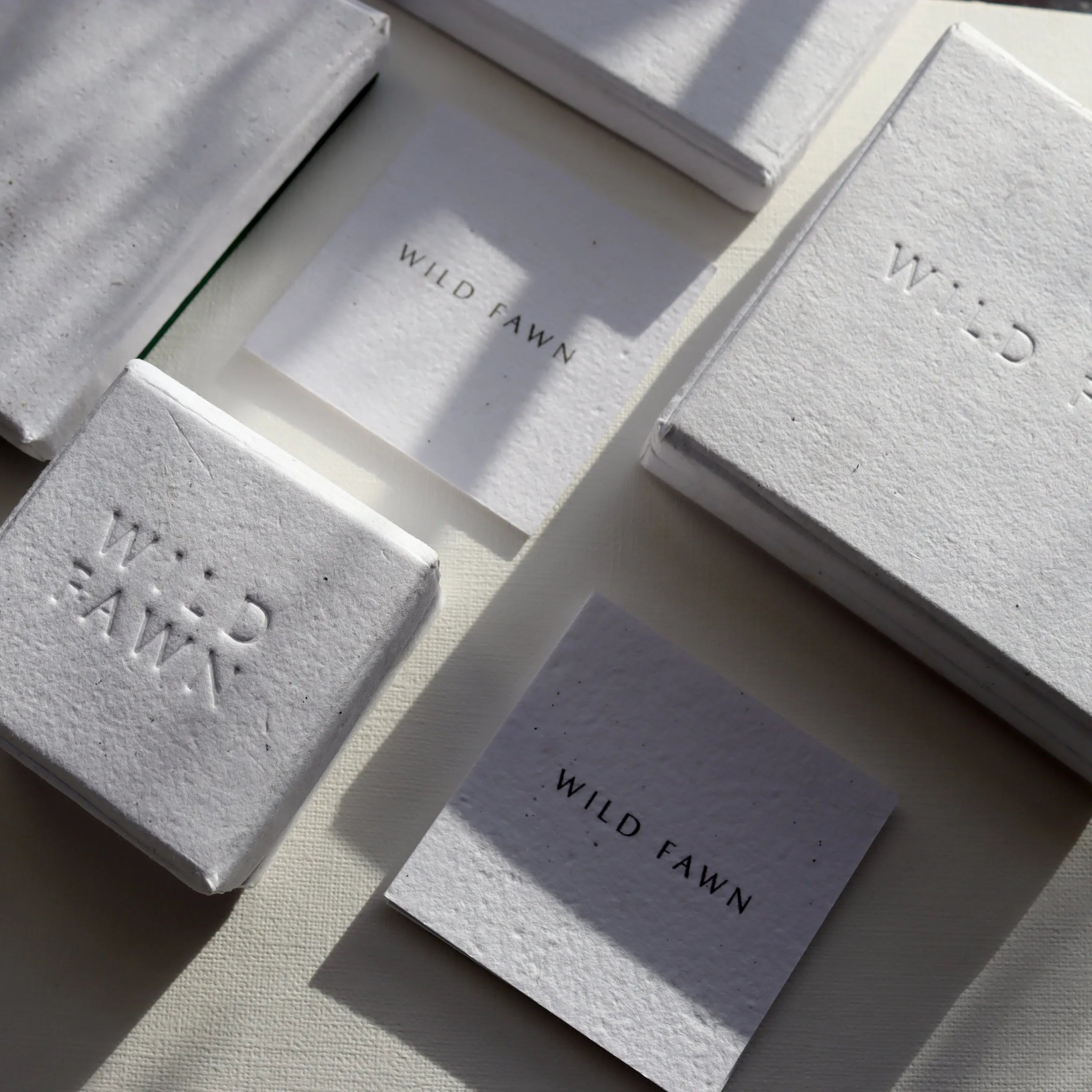Jewellery Care
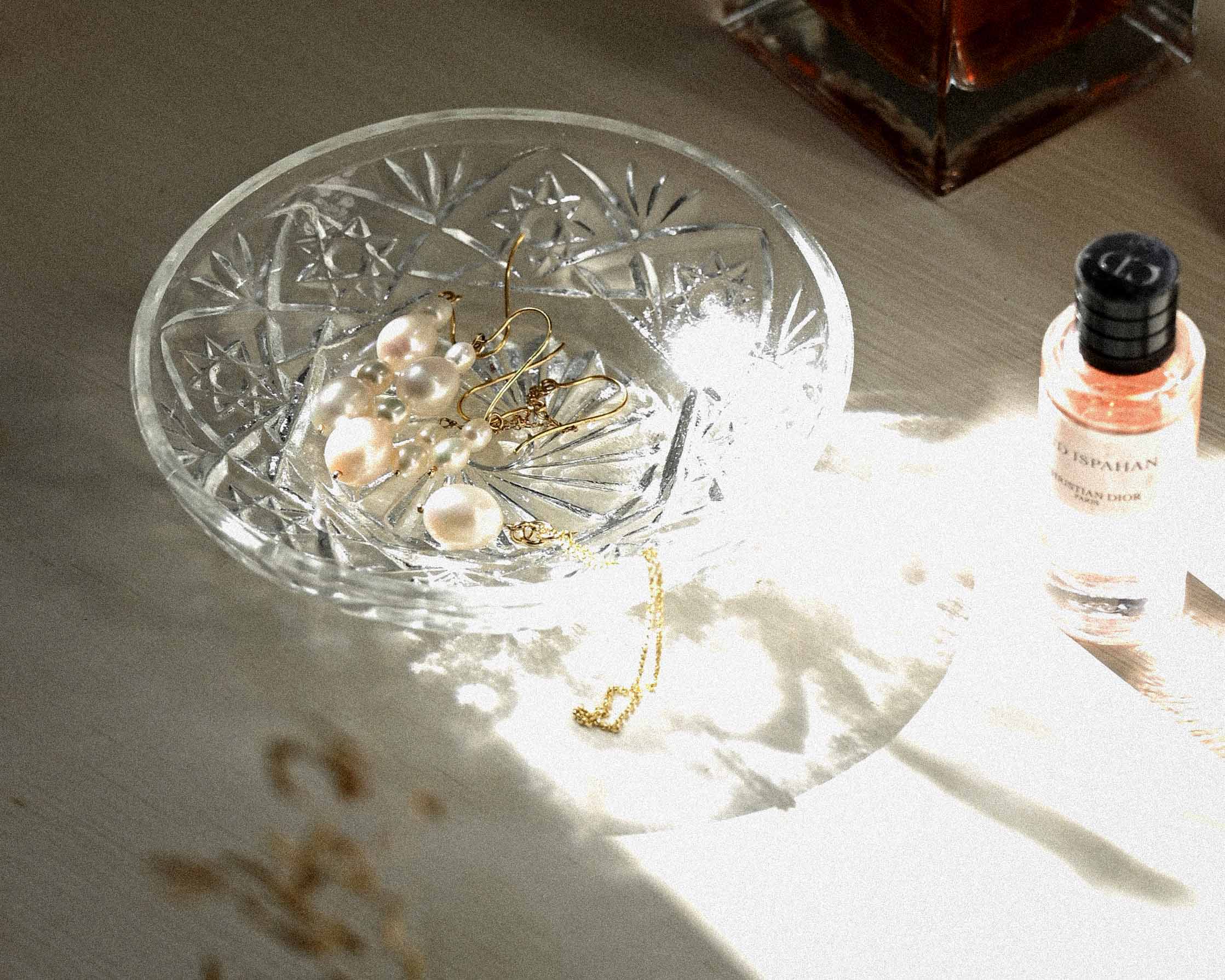
Jewellery care
What is tarnish?
If you own and love silver jewellery you’ll know exactly what we mean when we say tarnish. That annoying discolouration or dirty appearance on the surface of your pieces. Tarnishing is the process of oxidisation of metal. It starts to happen over time when your pieces come into contact with chemicals like sulphur, ammonia and natural oils in your skin, and are then exposed to oxygen. Thankfully it’s only a surface discolouration!
Fortunately, there are plenty of tips and tricks you can use to care for silver and gold. Instead of using harsh and abrasive chemicals to clean away the tarnish, you can opt for eco-friendly cleaning choices. Read on for some of easiest ways to clean your jewellery and get ready to refresh your jewellery!
Jewellery care
Preventative Care
Prevention is easier than cure, so here's s some ideas about how to avoid tarnish altogether.
Prevention
Wear Your Jewellery
Even though it sounds counter-intuitive, wearing your jewellery as often as you can will help you avoid tarnish. How so? Your skin produces natural oils that seem to clean the metal as it rubs and touches the skin, keeping it looking bright and shiny. However, this same oil will cause tarnish when jewellery is left unworn for long periods of time, so the best way to stop your silver tarnishing is to wear it!
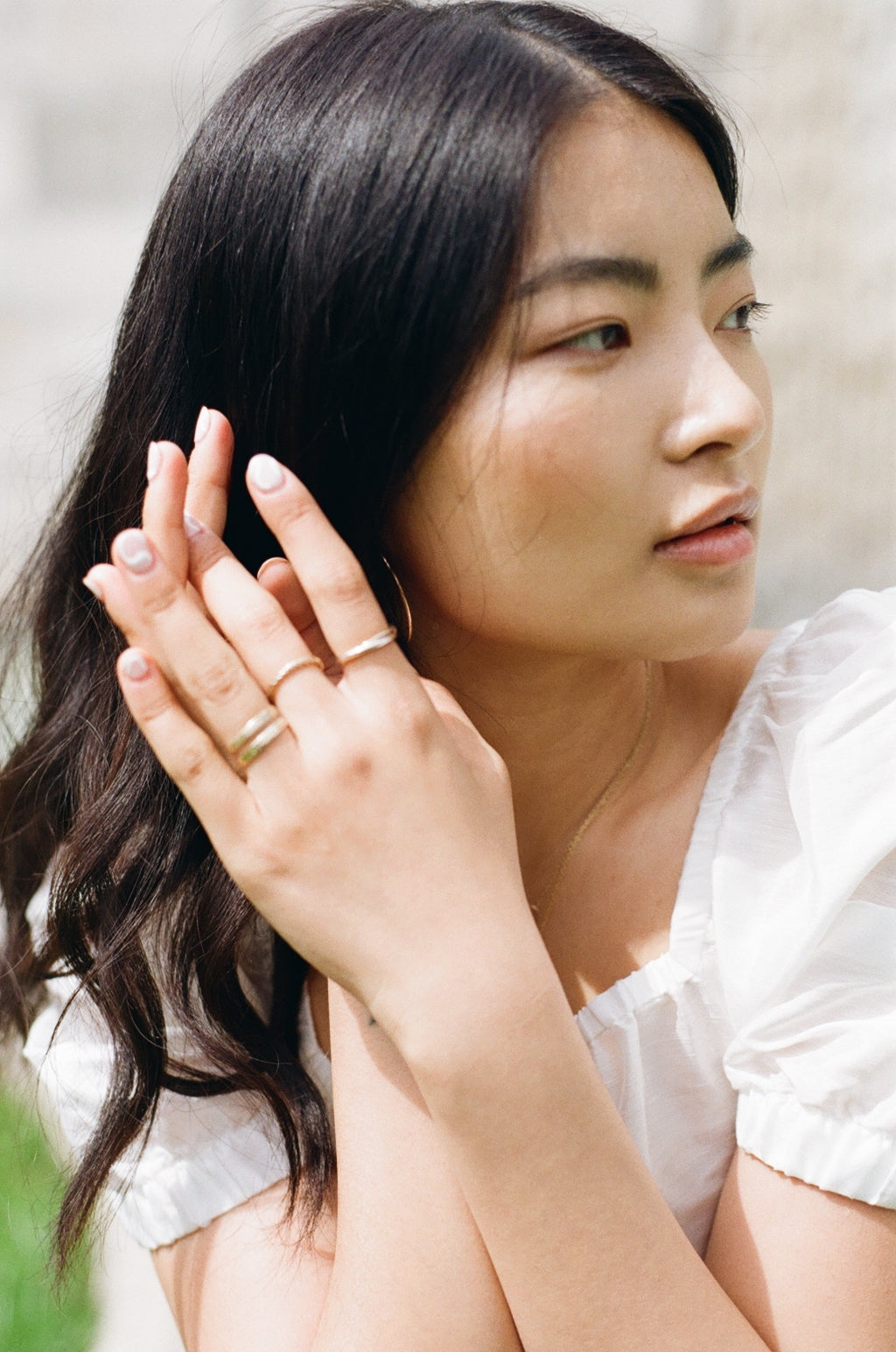
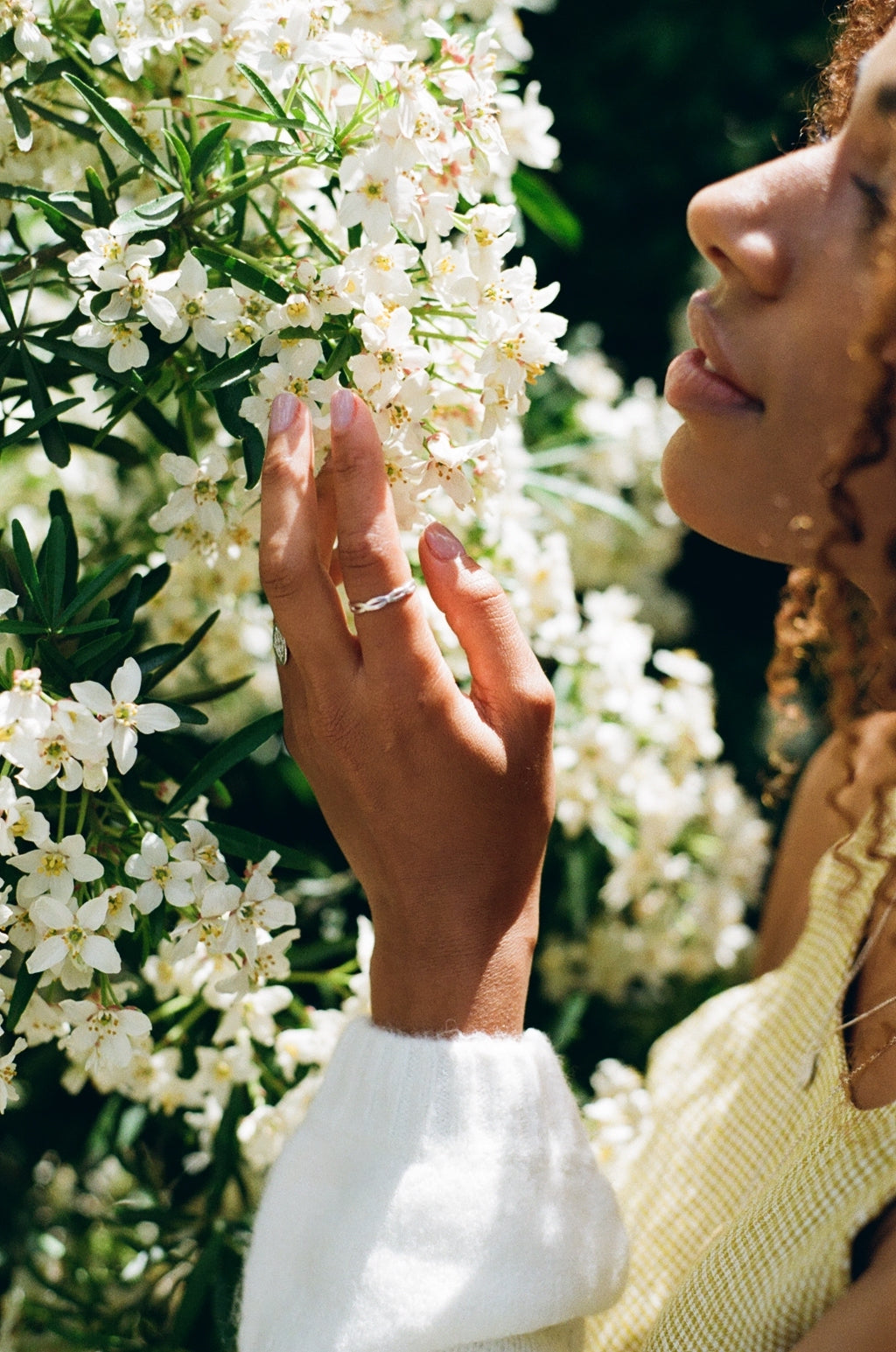
Prevention
Avoid Chemicals And Cosmetics
To avoid tarnish, it is best to keep your jewellery out of contact with household chemicals, chlorine, or any substances containing sulphur, phosphates, ammonia or rubber. We recommend not wearing your silver jewellery when doing chores involving chemical cleaners.
Perfumes, skin lotions, hair spray, other hair products and even perspiration can also cause silver to tarnish. We recommend you get fully dressed before putting on your jewellery. Leave the best until last - like the icing on a cake!
Similarly, exposure to sunlight can cause silver to tarnish, so don’t store your jewellery in sunlight and possibly even take off your silver jewellery before swimming & sunbathing.
Prevention
Storage Is Important
The most common cause of your jewellery tarnishing is simply exposure to air. So one of the easiest ways to prevent tarnish is to store silver in airtight plastic bags, even better to include anti-tarnish strips if possible. Although we prefer to avoid plastic in all aspects of life, in this regard it is unrivalled as far as we know (please let us know if you have alternatives!)
Make sure you store your jewellery pieces separately to avoid scratching and chains tangling. The storage area should be dry and with low humidity, adding a piece of chalk or activated charcoal can also help minimise tarnish.
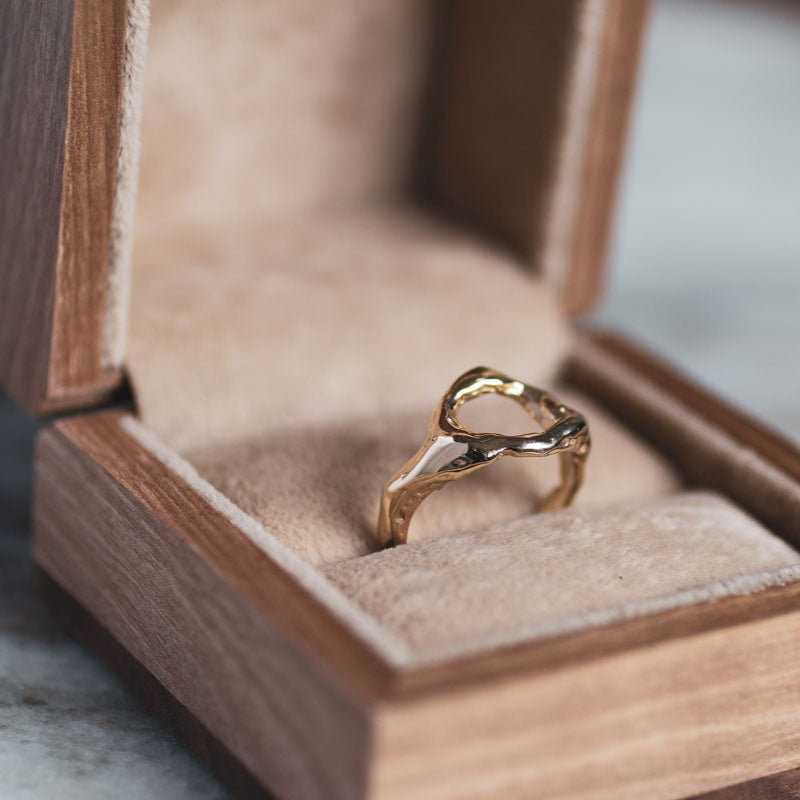
Jewellery Care
Cleaning
Our tips and tricks for cleaning your jewellery. Feel free to get in touch with us if you'd like to discuss how to clean your jewellery.
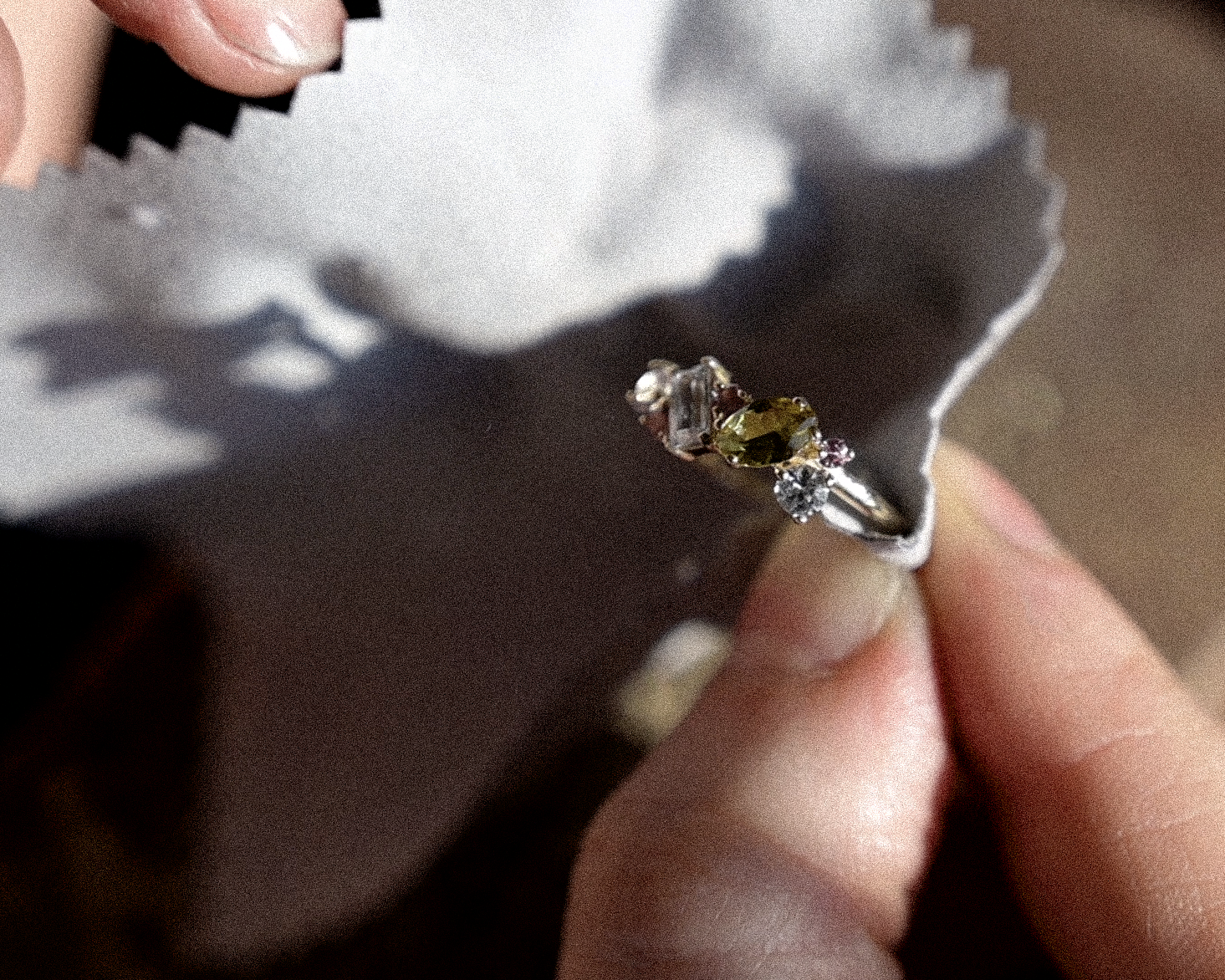
Cleaning
Polishing Cloth
If your jewellery is stored in a jewellery box or other exposed area, regularly using a polishing cloth can keep them looking shiny. We recommend every jewellery-lover has a polishing cloth to hand. You can buy one from us here.
You could also use a microfibre cloth, lint-free flannel, or any other soft non-abrasive cloth to polish your pieces. As far as metals go, silver is relatively soft, which means it can easily become scratched so don’t be too vigorous with your polishing and do not use tissues or paper towels.
We do not plate our jewellery, but if you are polishing silver or gold-plated jewellery, be aware that over time your polishing might wear away the plating and reveal the metal underneath, so be careful!
Cleaning
Dip Cleaner
Sometimes you need something a little more heavy duty and easily available. You can buy dip cleaners in large supermarkets. But please note that they can be too harsh for some types jewellery especially pieces with gemstones and pearls. The cleaning solution can severely damage them, so always read the instructions.
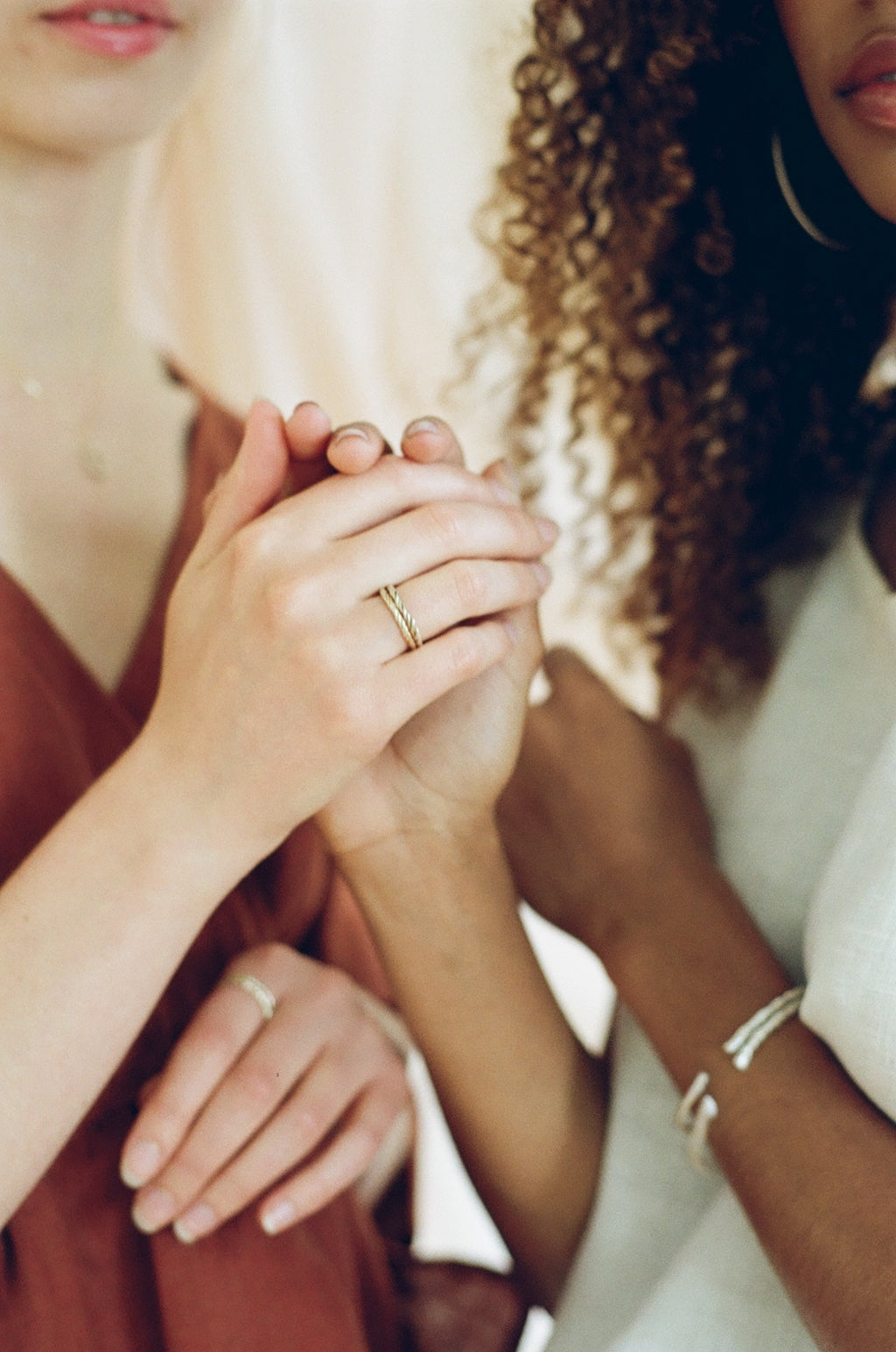

Cleaning
Washing Up Liquid
It might seem rudimentary but a mild washing-up liquid can be a great DIY cleaner for a variety of jewellery including silver, diamonds, and even delicate pearls. Just make sure it does not contain chemicals, such as ammonia or phosphates.
Simply mix the liquid with some warm water and dampen a soft cloth in the solution. Gently rub the pieces with the solution and rinse thoroughly in cool water. If you want to clean in deep texture or around diamonds, which can become grubby when worn daily, you could use a soft bristle brush, like a bamboo tooth brush.
Gemstones are very delicate and need to be treated with extra care. Stones like rubies and sapphires can withstand soapy water when you want to clean them, others cannot, so make sure to check the stone type before cleaning.
When cleaning pearls this way, bear in mind that you should only dip them in soapy water for short periods of time, leaving them submerged or scrubbing them vigorously can damage them, dry them with a soft cloth immediately after cleaning.
Cleaning
Vinegar
White vinegar is another DIY cleaning solution to help bring your gold and silver jewellery back to life.
Fill a small bowl with white vinegar and place your gold jewellery in it. Leave it submerged for no more than 20 minutes, then use a soft bristle brush to get at any stubborn grime. Rinse thoroughly and dry with a soft cloth. Do not exceed 20 minutes or the vinegar could damage your gold.
Your Silver pieces will need a little bit more than vinegar alone, dampen a cloth with vinegar and baking soda, then rub it onto the surface.
Never use vinegar on Gemstones or Pearls as it can damage them.
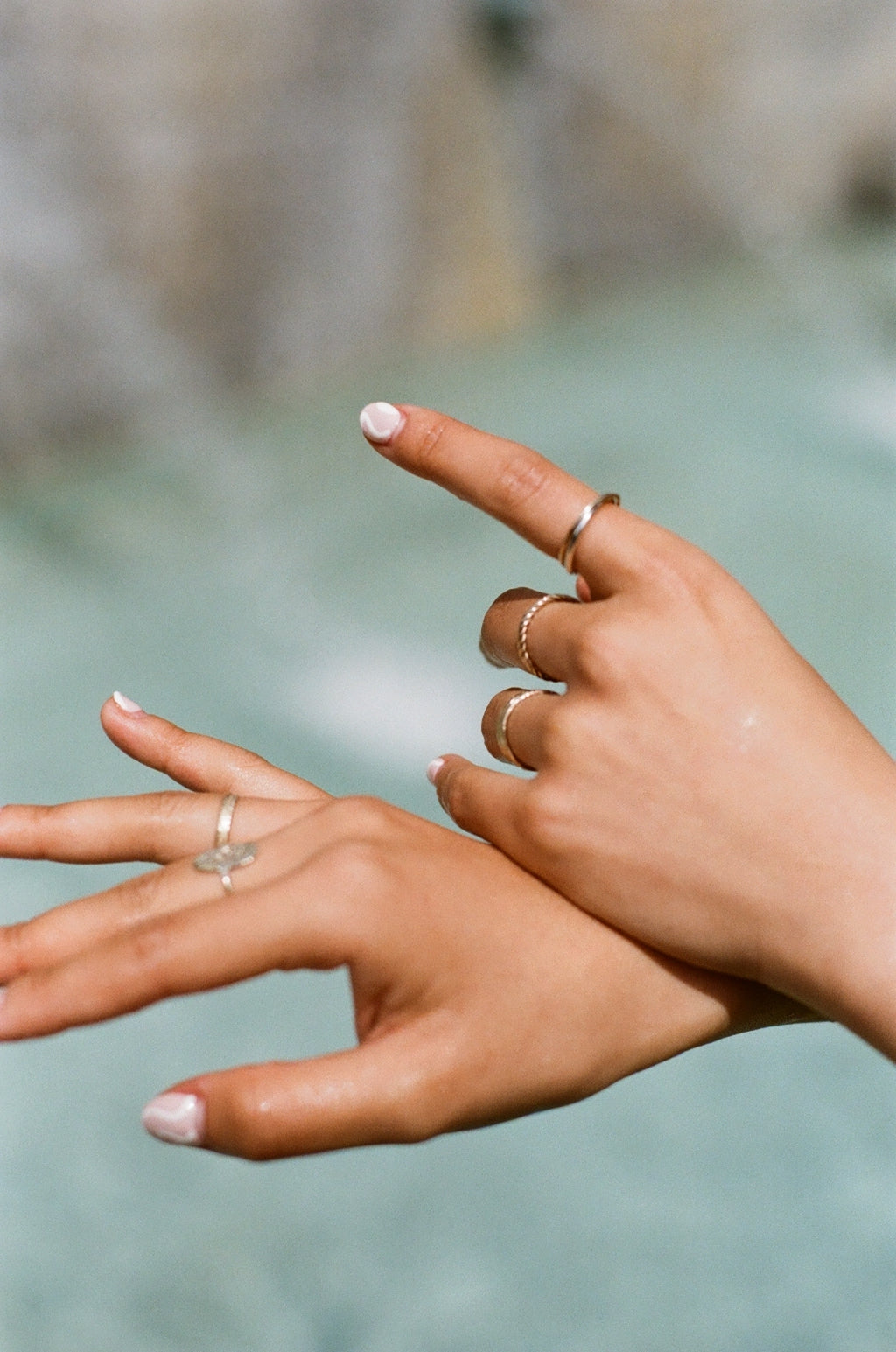
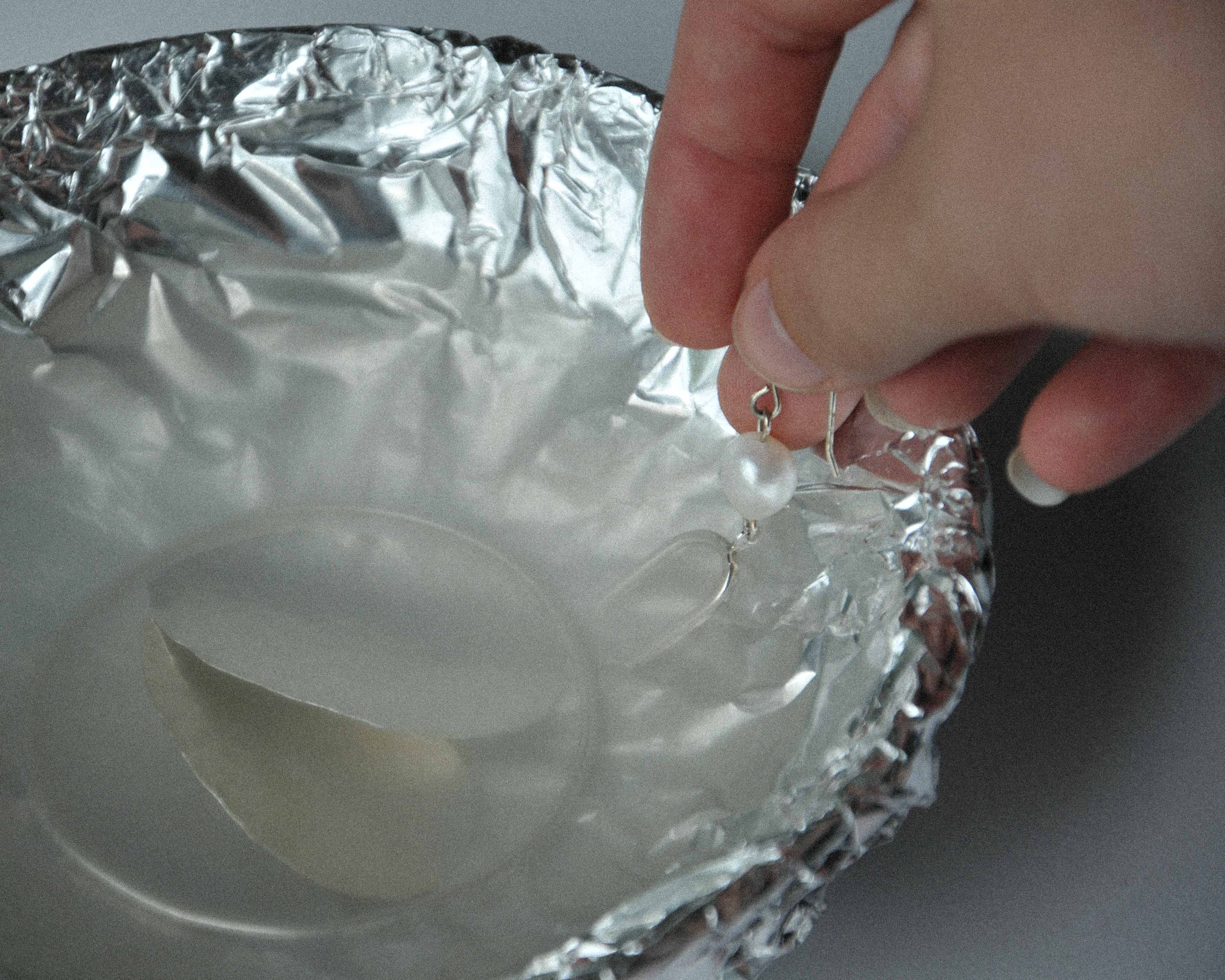
Cleaning
Baking Soda
Baking soda is probably the most commonly used eco-friendly cleaner for a variety of tasks in your home. It is great for cleaning jewellery too, especially if your pieces need a deeper clean.
Dampen a cloth, rub on some baking soda, then gently polish your silver with it. It can also be used on gold. Just sprinkle some baking soda onto the gold, gently rub it, leave for a few minutes then thoroughly wash it off.
To get into the crevices of detailed pieces or behind stones, create a thin paste with basking soda and a small amount of water. Use a clean, soft-bristled toothbrush with the paste to get into even the smallest parts.
Baking soda is our preferred method of cleaning so we thought we would demonstrate it for you here.

